Married to a Narcissist, Written By: Laura Richards
Living with a narcissistic spouse can silently chip away at your mental health, leaving deep, unseen scars. The journey of being married to a narcissist often unfolds behind a veil of normalcy, masking the turmoil with smiles and shared laughs that fool even the closest onlookers.
In this candid account, I peel back the layers of pretense to reveal the profound emotional toll and my path to recovery.
I spent 32 years as a devoted wife, always striving to be the best I could be, despite never feeling quite good enough. My efforts included endless hours of marriage classes and therapy sessions.
I explored self-help resources, like podcasts and videos, all in an attempt to salvage what felt like a failing marriage. Every one of these efforts to have a healthy relationship would just leave me crying or begging. My fragile self-esteem just took blow after blow.
Despite my dedication, I found myself constantly frustrated, sad, controlling, and depressed—a stark contrast to the happy domestic life I had envisioned, influenced by my parents’ long and seemingly joyful union.
The Early Years: Signs of Trouble With My Narcissistic Partner
From a young age, I sought a connection where I could feel loved, listened to, and cared for. My boyfriends weren’t just casual flings; they were serious commitments, as I was quick to fall in love and eager to share the depth of my affection.
I felt that if they loved me, then the deep wound of needing to be seen, heard, and cared for would be filled! We know that’s not how love works, is it? When I met my ex-husband in college, he was charismatic, attentive, and funny!
So many good qualities of the kind of man I would want as my boyfriend or husband! I know now that I was always looking at my boyfriends as husband potential and not just as romantic partners I could have fun with at the moment.
At first, my ex-husband and I were just friends. We hung out with his college girlfriend and my college boyfriend. The four of us were together until we both had breakups and saw potential in each other.
Even though I had been with my previous fiancé for 5 years, I barely gave myself time to grieve the relationship. I jumped at the chance to be loved by someone else. My heart wound was still needing to be filled, after all!
The Downward Spiral: Married to a Narcissist
As we transitioned from friends to life partners, our relationship dynamics began to reveal a disturbing pattern. My ex-husband, whom I now believe was a narcissist, displayed a knack for manipulative behaviors, especially evident during our swift engagement and subsequent marriage.
The cycle of abuse began almost immediately, marked by narcissistic behaviors such as love bombing and future faking. I see now how my ex preyed on that innocent girl with low self-esteem who just wanted to be loved, who was insecure, and who paid him lots of attention.
I also know now that his insecurities played a part in choosing me as well. We started dating and had ups and downs immediately.
We were together but breaking up often. I ignored my own desires, often succumbing to his every demand so that he wouldn’t stop being my boyfriend. Then I could avoid the ache of feeling unloved.
Our four-month engagement ended with our marriage ceremony. Now I know that a narcissistic person will rush an intimate relationship because they can only mask their narcissistic behavior for so long.
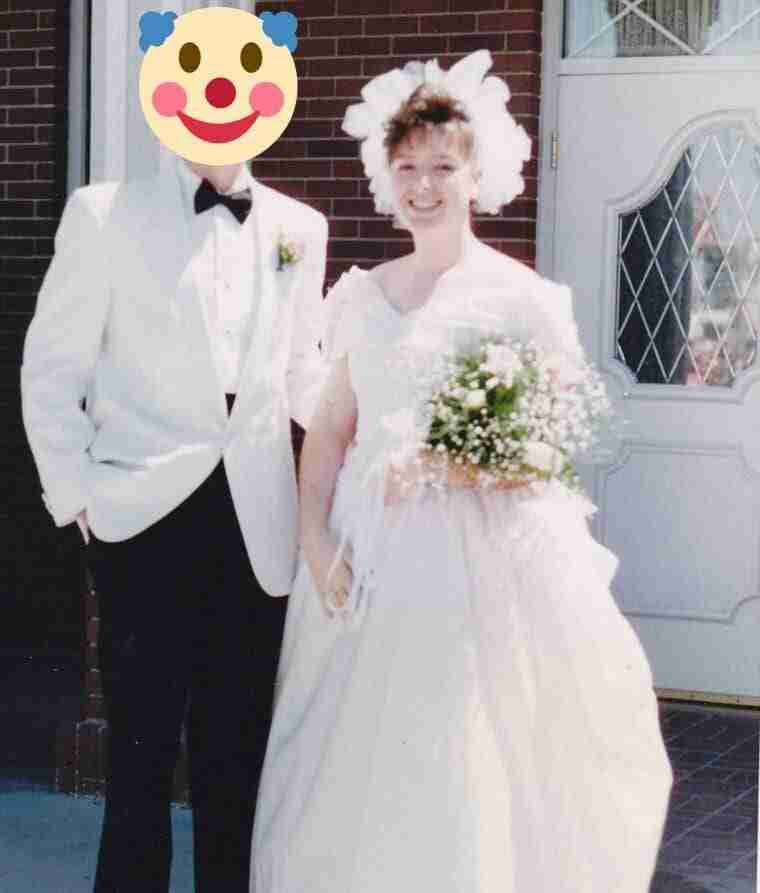
Beginning the Cycle
In the early stages of a relationship, narcissists tend to love to bomb you with words and gifts, sweeping you off your feet. The constant praise and excessive admiration make you feel like you’re the best thing that’s ever happened to them.
This was the beginning of a cycle of abuse marked by his narcissistic traits and manipulative behavior. The love bombing and future faking were strong with this one!
He saw my desperate, constant need to be loved and took advantage. Add in his need to please his parents by doing all the “right” things by graduating college and getting married, this was a recipe for disaster.
While married to a narcissist for 32 years, I endured psychological and emotional abuse that I couldn’t initially identify because it didn’t fit the conventional definition of spousal abuse.
An Example of What This Insidious Abuse Looks Like
I remember the first time I said to my ex, “Why won’t you tell me I’m a good mom?” He said it was because sometimes I got mad at the kids. So, he couldn’t say I was a good mom if I wasn’t a good mom 100% of the time.
This is very unrealistic, as humans are not perfect. Looking back and talking to my grown children, I know I was a good mom. I just had a hard time not being supported. I knew that no matter what I did, I would never get that coveted “good mom” title from him.
Even when he wasn’t around, and I would make a mistake, I knew I was a failure. It’s part of the way that they make you feel. Even when they are not in the room, you can hear their voice in your head saying, “You’re not good enough.”
If I were close, I would get a somewhat kind word, maybe on a Mother’s Day card, but those “breadcrumbs” just kept me strung along, hoping that one day I would get the words I longed to hear.
There is More to Abuse Than We Have Been Taught
I did, years later, while sitting in therapy, begging for them. They meant nothing at that point. Much too little too late. He would say, “You always bring up the past.” in an effort to make me stop asking, but that’s so you can’t hold them accountable for their actions.
I thought if your spouse wasn’t hitting you, then you weren’t in an abusive marriage. I didn’t even realize I was being abused until after the blindfold came off, and I started to set boundaries with him and see him for who he truly is.
It was only after years of suffering and the gradual erosion of my self-worth and self-esteem that I understood the true nature of the narcissistic marriage.

The Public Pretense vs. Private Pain of Being Married to a Narcissist
Our public persona as a happily married couple was a stark contrast to our private turmoil. Behind closed doors, I faced constant criticism and unrealistic expectations, always falling short no matter how hard I tried.
He told me what I should do to be better, and I tried to do them all. However, the goalpost would get moved near the end of my attempts. Even if I accomplished these goals to perfection, he would say it wasn’t enough, or it was too little too late.
There were often unmet and unexpressed expectations from him. I felt like a failure for the length of my marriage. By the end, I wanted to check into a facility filled with mental health professionals or no longer be alive.
But the bad times did not come without the good. That’s how the trauma bond happens in an abusive relationship. The bond is formed in situations where there is a repeated cycle of abuse and intermittent reinforcement.
In public, his mask was on tight so as to keep up appearances. The façade was that we were a happily married couple who had fun together, liked similar things, and generally enjoyed each other’s company.
At home, the mask would come off, and I was reprimanded for not doing things right, for embarrassing him, and for not being “better” in the situation we were just in socially.
The smear campaign conducted by my ex-husband exacerbated the situation, as he sought sympathy from others while simultaneously disparaging me behind my back.
It’s all part of the game that the narcissistic spouse plays to get others to feel sorry for them for being in such a “terrible” marriage.
Awakening and Exit: Breaking Free and Identifying My Own Needs
The other point of contention in our marriage was his need for the attention of other women. With what I believe is a deep mother wound, he would often befriend women from all parts of his life to help fill that wound.
This was a constant source of discord in our marriage. We attended marriage counseling about this topic more than once.
Each time we came out of counseling, he seemed to understand how I was feeling. However, he would contradict himself by insisting that if I would “just give him more sex any time he wanted it,” that would prevent his need to seek female friends.
This attempt to make the problem someone else’s fault is an essential weapon in the narcissistic spouses’ arsenal.
He promised nothing was going on with any of them, but my gut told me otherwise. I watched him groom his current wife right in front of my eyes. I allowed it because I was gaslighted and manipulated and because I felt like I was controlling and a complainer.
Allowing my healthy boundaries to be crossed repeatedly is how I sent the message that he could continue with his narcissistic abuse. All he was doing was pushing his bad behavior to the limit, and I allowed it every time.
Until one day, I didn’t. My divorce felt like the beginning of a whole new life.
The End of My Narcissistic Marriage and Rebirth of My Own Life
I had waited for years to feel alive and well. The day I told my ex I wanted a divorce, I felt a huge weight lift off my shoulders.
I remember one day, he was telling me a story about the neighbor buying a new car, and I held up my hand and told him, “Let me stop you right there. I don’t care about Joe’s new car.”
Then, I stood up and walked away. He angrily yelled, “What the hell is wrong with you!” as I walked across the room.
I had been trying for years to listen to his stories with undivided attention in hopes that, once in a while, he would listen to and care about my stories. He did not.
As a devoted wife and mother, I led my home by example, all the while slowly dying inside from lack of support and care. I spent many days yelling at my kids from frustration that I didn’t have any help. Lamenting how no one told me I was doing a good job.
Many nights, I cried from the lack of affection and sheer exhaustion of having 3 kids, 5 years old and under. Our youngest son had special needs, so add that to my level of sadness and frustration.
When we divorced, I immediately threw myself into intensive healing.
Healing and Empowerment: A New Chapter Without My Narcissistic Husband
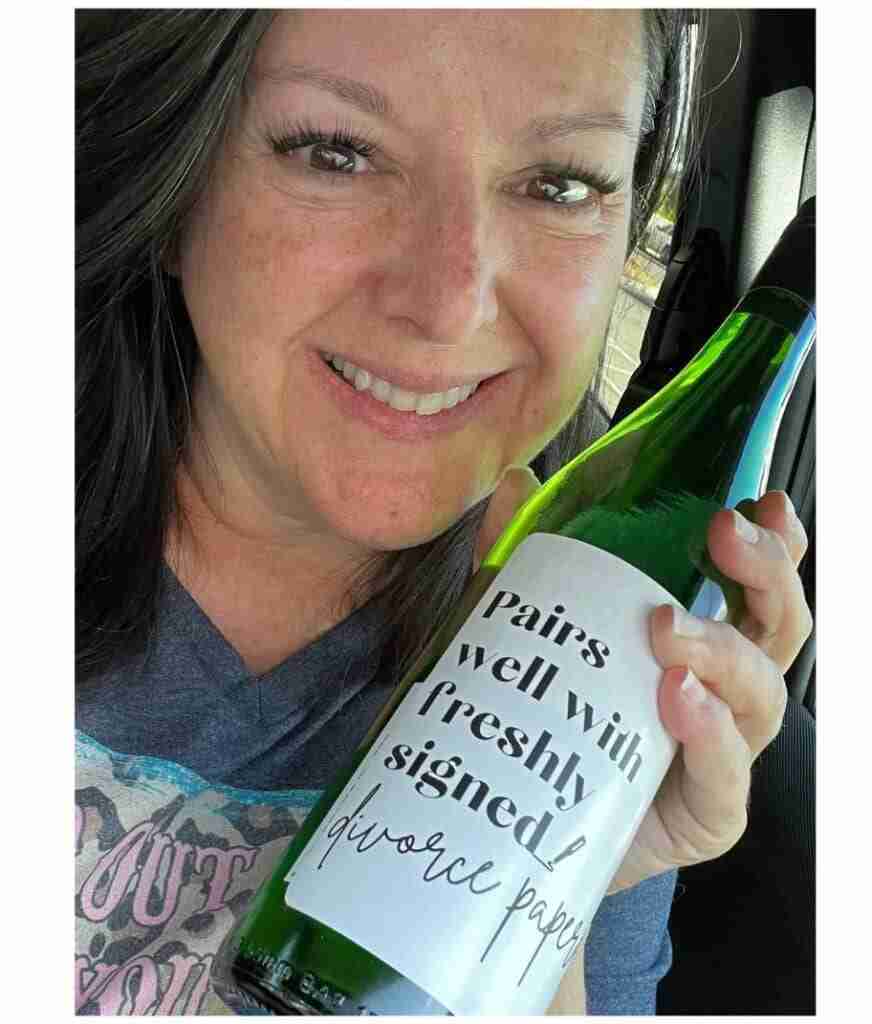
Post-divorce, I immersed myself in various healing practices. These included therapy, spiritual counseling, and self-care regimes.
I tried holistic therapy, meditation, hypnosis, taking a vacation to the beach, journaling, and everything else I could think of that would heal my broken heart. That was often my prayer in my journal.
I felt like I had spent my marriage with a broken heart. One group that I joined was a divorce group in a church. We worked through a workbook, had group discussions about our divorces, and tried to heal the best we could.
In the divorce group, some of us were divorced, and some of us had just been served their divorce papers. I remember a couple of the men in the group had wives who were already off with new boyfriends!
I was somewhere in the middle… healing. So happy to be done with him, yet still navigating the trauma bond.
The Trauma Bond
No one tells you about the trauma bond and the cognitive dissonance that happens. How your brain holds on to love and hate all in the same breath. How learning about his “new” girlfriend would make me feel. Learning about his “new” girlfriend made me want to die.
While I saw it happening in front of my eyes, I went into a tailspin of emotion when I heard about their relationship and realized that I understood why some women snap.
On my journey to healing, I found that many people were in a hurry for me to forgive him and move on, especially certain family members.
I Healed from My Narcissistic Relationship Outloud
Why was I talking about him and his personal relationships so much, others wondered. After 33 years with this man, I had never felt this level of betrayal.
My heart and my head didn’t understand that I was emotionally dependent. I could barely handle what was happening to me.
I believe I will be healing for a while because 33 years of trauma is not erased overnight or ever. But we can move forward in victory if we have the tools and the know-how to live our best life.

As I dug deep into the depths of my soul, the pain I felt was almost unbearable. I have never felt so alone in my whole life. I felt like a fool for not seeing what was happening and for seeing what I did and allowing it.
Don’t Let Being Married to a Narcissist Silence Your Voice
As I spoke to other women about the betrayal or abuse they had endured, I no longer felt alone. I shared my story publicly on social media, no longer censoring myself.
I would often censor my stories to protect the image of a happy family and an even happier marriage.
Many friends were wildly surprised that we were getting divorced. I had curated our life so that no one would know how miserable I was and how disappointed he always seemed to be in me.
The more I shared my stories with others, the more I found my tribe.
Women I hadn’t heard from in years came out of the woodwork to share their past traumas with me.
Slowly but surely, the sun came out again in my life. I kept sharing my story, hesitantly at first, then with more boldness.
Within my social and personal relationships, there were those who wanted to hear my story and those who wanted me to let it go and just to forgive.
But in my heart, I knew that if I didn’t share my story, others would live their life quietly, dying in their abusive marriage.
From Silent Suffering Within a Narcissistic Marriage to Shedding Light on Abusive Behaviors

I needed to make a change. I shouted my story from the rooftops and started a podcast where I would speak to women with stories that they were told to “not talk about.”
Then, I found women who had also been married to a narcissist and became coaches, therapists, and ministers and have spent their lives helping others heal from their trauma.
They took their pain and turned it into purpose. The key for me was setting boundaries with those around me. I learned that my lack of boundaries had gotten me to the place I was at. Setting healthy boundaries was the ultimate act of love for myself.
I also spent many hours journaling my pain and writing words of love to myself to help me heal. Always healing that broken heart.
So, I want to encourage you today to keep walking forward, and even if you take a step back, it’s just a cha-cha-cha, not a setback!
Straighten your crown, and turn that pain into purpose in your life! You’re worth it!
Overcoming adversity after a divorce requires resilience, self-care, and a proactive approach to healing and rebuilding your life.
Helpful Healing Practices & Tips for Recognizing a Narcissist’s Behavior
Recovering from a relationship with a narcissistic spouse requires a mix of self-care, external support, and personal growth strategies.
Recognizing the patterns of behavior typical of narcissists can also empower you to protect your well-being and prevent future manipulation. Here are essential practices and tips that can aid in your healing and help you understand and identify narcissistic behaviors more clearly.
Set Boundaries
Seek Support
Self-Care and Self-Compassion
Establish Independence
Set Goals for the Future
Reflect and Learn
Set Boundaries
Setting boundaries is crucial for maintaining personal well-being. It involves creating clear guidelines, rules and limits about how you wish to be treated.
Effectively setting boundaries means informing others about the actions you will take if they continue with behaviors that you find unacceptable.
This not only protects you, but also teaches others how to interact with you in a respectful and healthy manner.
Seek Support
Support during recovery can take many forms, from therapy or counseling, to help process emotions to joining support groups with others who have faced similar challenges.
Confiding in trusted friends and family members is vital, as emotional support plays a critical role in the healing process.
Surrounding yourself with a supportive network can provide the strength and perspective needed to move forward.
Self-Care and Self-Compassion
Prioritizing self-care is essential for both emotional and physical well-being. This can include regular exercise, a healthy diet, sufficient sleep, and activities that promote relaxation and joy.
Equally important is practicing self-compassion, being kind to yourself, and recognizing that healing takes time.
Self-compassion encourages patience with your recovery and helps mitigate feelings of guilt or inadequacy.
Establish Independence After Being Married to a Narcissist
Post-divorce life is an opportunity to rediscover and reinvent yourself. Being single is not a deficiency; it’s an empowering state that allows you to focus on personal growth and self-love.
Establishing your independence helps you learn to enjoy your own company and make decisions that are truly beneficial for your health and happiness.
Set Goals for the Future
Setting both short-term and long-term goals provides direction and a sense of purpose. These can relate to career, personal development, or pursuing new hobbies.
Achieving these goals can significantly boost your confidence and foster a positive outlook on life, increasing resilience.
Goals help you visualize a future where your past relationship no longer defines you.
Reflect and Learn
Reflecting on your relationship and the divorce offers crucial insights into personal growth and future relationships.
It’s important to acknowledge the pain and learn from the experience. This reflection can lead to a stronger, more self-aware version of yourself.
A great piece of advice I was given was to ask myself where I was out of integrity with myself in the relationship. Remembering this can guide you in all future relationships and interactions.
These practices and insights not only support your healing from a past relationship but also arm you with the knowledge to recognize and avoid similar situations in the future.
Lessons Learned From My Narcissistic Marriage and Looking Forward to Healthy Relationships
Today, I encourage anyone dealing with the aftermath of being married to a narcissist to prioritize self-care, seek support, and establish clear boundaries as fundamental steps toward recovery.
My life now is a testament to overcoming adversity, filled with self-compassion and a proactive approach to building a fulfilling future free from the shadows of the past. I have written a book, started a podcast, and am enjoying life.


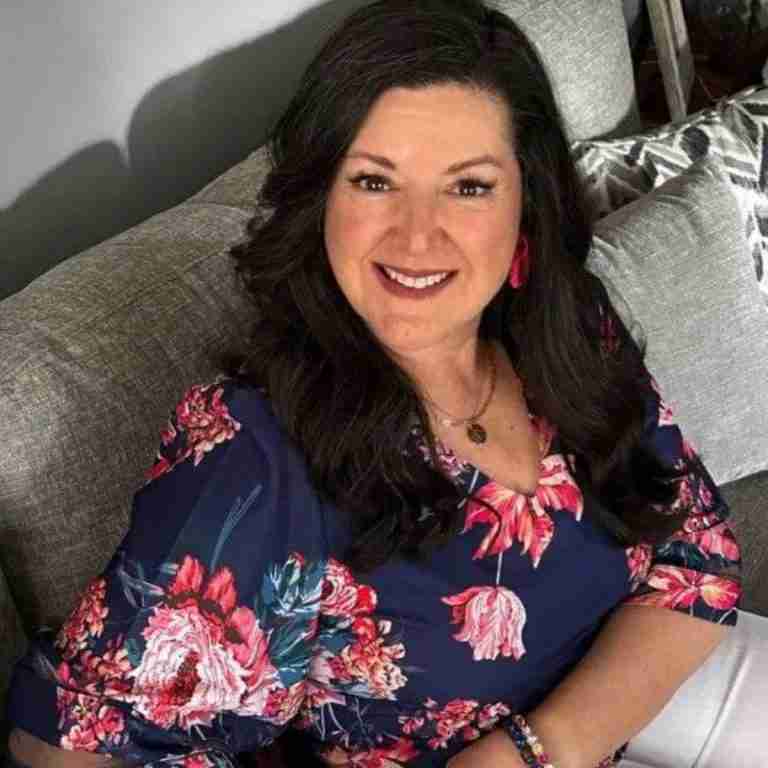





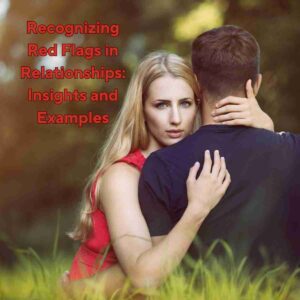




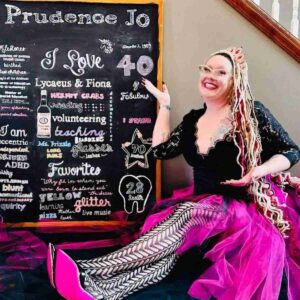



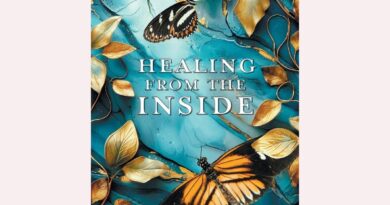
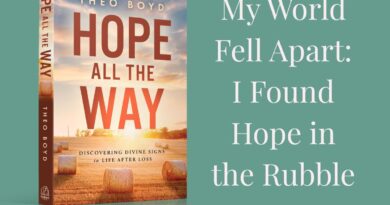










I am so pleased to have found your site. It was actually Amazon who made me think of where to search for sites like this.,
I only just found out this year that the MONGREL I married is a covert narcissist. we were married from 1962 to 1997 before I found out that he was using coercive control and emotional abuse on me, after reading the book Emotional Blackmail by Dr Susan Forward which was presented by Oprah on TV.
I always knew there was something wrong with me but could not put my finger on it. I know now THE RED FLAGS WERE THERE ALL THE TIME BUT I DID NOT SEE THEM, BUT CERTAINLY DO NOW.
He destroyed everything I worked hard for, our house, our (HA HA) well-earned retirement fund from IT work since 1977 now valued at $1.7 Million, also I lost my house to a vindictive stalking bitch and the corrupt cop would do nothing about it. He told me I had no right to lodge a complaint against my ex-husband.
I found out 2 years ago the REAL HORROR AND BIZARRE LIFE WHICH HAD BEEN INFLICTED ON ME,
On the 31 May 1999 after obtaining my mental health files 2 years ago I found a document where he contacted mental health and gave despicable information about me. All these years the 3 mental health units BELIEVED HIS VINDICTIVE LIES AND WOULD NOT LISTEN, BELIEVE OR HELP ME FOR 25 YEARS now 27 years.
I lodged 5 gross medical negligence claims about them because they put me on Olanzapine a powerful drug in 2002 and I became a ZOMBIE until 2022. My research on this drug took me to the world-famous Mayo clinic and the survivors of this drug said the same thing, they were ZOMBIES.
I now am maimed for life with a serious disability and am in serious pain continually. I lost all of my complaints despite the evidence in my mental health files which prove what happened to me, so I am now in the process of getting my lawyer to sort it out. It is no use me contacting them because they WILL NOT LISTEN TO WHAT I HAVE TO SAY.
I even offered them my book I published last year, written from the diaries I kept from 1997 onwards. A powerful Obsession which now listed on the internet has HIT THE BIG TIME, even my website is busy, sometimes I get the message come back later we are too busy to cope with all the traffic. HA HA.
So that’s where I am at now all these years of serious covert narcissist abuse trying to get vindication for all the serious crimes committed against me.
I actually lodged 6 complaints to the police and not one would investigate, I have since found a site where you can get all sorts of info on government departments. I now have a letter from a DECENT police dept which states I can name publicly these corrupt. unethical lacking integrity and one blatant liar cops who do not honor the serious oath they swear on.
I have a letter from the solicitor general who advised me to lodge the recent historical complaints, and she will consent to them, but the police still will not do anything,
Two other crucial documents I found in my mental health files, one a letter I wrote to a psychiatrist around 2000 asking for his help. I also stated or do I have to suffer the consequences of an incompetent diagnosis for the rest of my life. he obviously agreed with that statement because he wrote on the top of the letter to his secretary “Please file No Response” what a despicable attitude for someone who is supposed to help you.
The other document from the same unit actually STALKED ME as I went around one day obtaining evidence against the MONGREL, they documented all my movements including going to the corrupt cop, I was on this journey on the advice from my solicitor.
The latter document I am sure was sent to me in error, certainly not something they would like me to read.
Wow. We are so sorry you had to endure all of that. Thank you so much for taking the time to read and comment. We are glad you found the site, too. Hopefully, you can find lots of things to inspire you on your healing journey. Don’t forget to connect with us on social media and find strength in our community, as well.
Your story has similarities to mine. I yearned for my father’s presence and my mother’s attention as a middle child. All I wanted was to be loved and cared for. Fell in love with the attention my ex offered and I thought no one else would give me that. 32 yrs of marriage later, worn down, feeling worthless and disposable I filed for divorce. I’m 59 and learning how to be myself. Thanks for talking about this, it helped me heal a little more today. ????????????
Thank you for taking the time to read this story and leave a comment. We are glad it helped you. We invite you to take a look at some of the other inspirational content or send us a message if you would like to tell your story.
Thank you for sharing your story with us!
I am so sorry you experienced all that. If you ever decide you want to share parts of your story we will be here for you, but I understand why you are worried. Thanks for reading and taking a moment to leave a comment. Please consider signing up for our monthly newsletter and stay up to date on all our resilient stories!
Very inspiring story!
Laura’s vunerability in sharing her trauma is so very, very brave. Her journey and new strength will help so many people going through this, and for others to take a look at their marriages and gather strength to break free from their narcissist, so they too can start to heal as beautifully as Laura has. Laura’s newfound love for herself and ability to set boundaries is so inspiring. Wonderful article, thank you Laura!!????
We agree! It was a brave step for sure. We are thankful she chose us to help share her story. She is doing great work helping women learn to love themselves and heal. Thanks for taking a moment to leave a comment. Please consider signing up for our monthly newsletter and stay up to date on all our resilient stories!
Thank you so much for your kind words!
Thank you so much for your kind words! I’m glad that my story resonated with you.
Laura, you are such an amazing woman for sharing your story so that it might help others
We are very grateful! Her story is powerful and inspiring for sure. Thank you for taking a moment to comment.
Thank you, Jennifer, for always supporting me!
This article will help so many people. Thank you for sharing your journey with us. Keep moving forward and learning to love yourself.
Thank you so much for commenting. We are very thankful Laura chose to share a part of journey with us and our readers. We hope you take a moment to explore the site and read some of our other inspirational stories, too!
Thank you for your kind words!
Thank you for the opportunity to be able to share my story! I hope it helps and resonates with others.
Thank you for sharing your story. I’m going to share it with a friend who was in a similar situation.
I appreciate that! Feel free to send her my website ????
Kudos to Laura for getting out of her situation and taking back her life! This story will help so many women, well done!!!!
It was incredibly brave for her to share! We appreciate all her work to help other women and are honored to assist! Thanks for leaving a comment. We hope you take a moment to check out some of the other inspirational stories, as well.
Thank you so much, my friend!